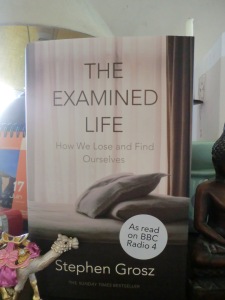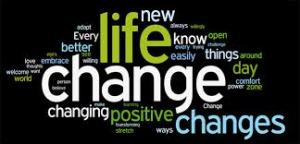 Recently I listened to a podcast entitled Literature on the Couch featuring Andrew Solomon, Greg Bellow and Stephen Grosz.
Recently I listened to a podcast entitled Literature on the Couch featuring Andrew Solomon, Greg Bellow and Stephen Grosz.
It was the book written by the latter that provoked my interest, Stephen Grosz’s The Examined Life, How We Lose and Find Ourselves. While there are many books one can pick up, which write with a voice of authority and experience on the subject of Freudian psychoanalysis, there are few if any, which have been penned as a practical legacy to the children an author will one day leave behind.
I like the idea of leaving lessons of our life’s learning to one’s children, they are the few people on earth we are able to genuinely love unconditionally and it intrigued me to seek out this book, to see if writing for one’s children on a subject one is something of a professional expert in and having already been reasonably widely published can remove the influence of ego or meeting the expectations of one’s academic peers and make a subject or in this instance many case studies, accessible to the lay person and true to that spirit of sharing wisdom with one’s progeny.
The book is divided conveniently into five sections, beginnings, telling lies, loving, changing and leaving.
The chapters are like perfume samples, distilled to their quintessential essence yet encapsulating the base notes that make a scent whole or a lesson in life complete. Incredible given that many of the cases he mentions are the product of a year or two of conversation, meeting with a person for fifty minutes, four or five times a week, over a number of years. A life work of more than 50,000 hours listening, learning, resolving, and understanding (or at least trying to).
In Beginnings, the first case that made me go back and reread a few pages was How Praise can cause a loss of confidence and once you’ve read it, you’ll understand the subtle difference between giving praise and giving something else more likely to boost esteem and confidence in children, so subtle and yet so potentially powerful. And what a great gift to pass on to those children, who may one day become parents themselves.
Admiring our children may temporarily lift our self-esteem by signalling to those around us what fantastic parents we are and what terrific kids we have – but it isn’t doing much for a child’s sense of self. In trying so hard to be different from our parents, we’re actually doing much the same thing – doling out empty praise the way an earlier generation doled out thoughtless criticism.
In Loving, the chapter Paranoia can relieve suffering and prevent catastrophe is insightful and may make us more sympathetic to those who suffer from it, particularly the elderly.
With old age, the likelihood of developing a serious psychological disorder decreases, and yet the chance of developing paranoia increases. In hospital I have heard elderly men and women complain: “The nurses here are trying to poison me.” “I didn’t misplace my glasses, my daughter has obviously stolen them.” “You don’t believe me but I can assure you: my room is bugged, they are reading my post.” “Please take me home, I am not safe here.”
Grosz suggests that paranoid fantasies, such as a feeling of being betrayed, mocked, exploited or harmed are a defensive response to the feeling that we are being treated with indifference. They protect us from the more disturbing emotional state, from a feeling that no one cares about us or is thinking about us, that we have been forgotten.
 In Changing, we learn how our very survival can be put at risk by our fear of change in How a Fear of Loss Can cause us to lose Everything. How some of us will escape at the very first sign of danger, even if it means doing something we are not used to doing and how others may perish, because of the fear of acting without sufficient information.
In Changing, we learn how our very survival can be put at risk by our fear of change in How a Fear of Loss Can cause us to lose Everything. How some of us will escape at the very first sign of danger, even if it means doing something we are not used to doing and how others may perish, because of the fear of acting without sufficient information.
“We are vehemently faithful to our own view of the world, our story. We want to know what new story we’re stepping into before we exit the old one. We don’t want an exit if we don’t know exactly where it is going to take us, even – or perhaps especially – in an emergency.”
Overall, an intriguing, easy read including stories which might easily be those we encounter or recognise in ourselves or others close to us and with a clear explanation of the hidden meaning and lessons that can be found within them. Not surprising to see it listed yesterday in the Guardian’s recommended Holiday Reads, literature for the couch, the beach, the balcony or wherever it is you’ll be putting your feet up this summer (or winter if you’re down-under!)


This one is going on my TBR list.
LikeLike
Enjoy! I have The Son on mine, downloaded and ready to go 🙂
LikeLike
I heard about this book some time ago and keep meaning to get it. You’ve convinced me to do so – it sounds fascinating. Thank you.
LikeLike
That’s just how I find new books, a little twitter (and I don’t mean a tweet – I mean the meaning of the word before it became what it is today) and then the affirmation of a review or conversation after someone has read it. Enjoy!
LikeLike
This “genre” (?) of a kind of professional reflection fascinates me, and this book also seems to contain much wisdom … you have, as per usual, excited me to read it! Are you also going to share more of your distilling? It looks wonderful …
LikeLike
I agree, I listened to Steven Pinker
on Desert Island disks (a BBC radio music program) last weekend and he is another interesting professional (scientist/linguist) who writes books I would love to read, but I’m not sure quite how accessible they are, he has yet do what Grosz has done and write for the lay person interested in his subject. But Pinker is now on my list anyway, a scientist who writes about language, how could I not be interested in that. 🙂
Ah yes, my magic potions 🙂 I make them on demand and for gifts and do a new collection every Christmas. My potion of choice from last years collection is called Awaken the Muse. I think it works too. 🙂
Check out the experience here. 🙂
LikeLike
Whew, what an exploration… for one who is semi-estranged from my children, that would be a tough read. They don’t want anything to do with what I’ve learned from my experiences.
LikeLike
Sounds like another good reason to write a book, written from that place of unconditional love, the best often written after much water has flowed under the bridge so to speak.
LikeLike
Beautiful review, Claire. I liked very much your description of the book as literature for the couch, beach, balcony. I also liked very much reading your thoughts on the book’s chapter on praise and criticism. I think in their extremes both praise and criticism may not be desirable, but finding the balance is hard. I have sometimes seen a person crave for a word of praise or encouragement from another person who normally doesn’t give it, but when he / she gets a word of praise from someone else who normally does that liberally, he / she doesn’t value it. It is a contradiction and a paradox. Just makes me think that we humans value things more when they are hard to get. Thanks for sharing your thoughts on this interesting book.
On the topic of perfume, have you read ‘Perfume’ by Patrick Süskind?
LikeLike
Another paradox Vishy, we value that which is hard to get and don’t appreciate that which is. A bit like economics and the theory of scarce resources.
Yes, I have read Perfume, totally fascinating. I am very interested in the energetic and psychological effects of natural oils and essences alongside their pharmaceutical properties, although I’m not really into commercial perfumes at all, the secrets and healing powers of ancient essences and the stories behind them, yes please And I love working with them for the benefit of others, I get to witness their magic nearly every day.
LikeLike
Glad to know that you read ‘Perfume’ and liked it, Claire. Wonderful to know that you work with perfumes and get to witness their magic every day. Envy you so much!
LikeLike
Great post Claire
LikeLike
Thank you Chris.
LikeLike
you are welcome
LikeLike
This book sounds fascinating and you’re review is beautifully written. I will definitely check it out – thanks Claire
LikeLike
Yes, I was nodding along.
I recently started a journal for my son about all the things I have learned and I was reading through it yesterday realising many lessons have to be relearned over and over again.
LikeLike
What a tempting book this sounds like….examining everything is the way to live. Thank you Claire!
LikeLike
Thanks, Claire. I just downloaded this. My speaking partner, Susan Sommers (NOT Suzanne Sommers, as she is quick to point out, LOL) and I often speak to women’s groups about embracing change at any age and I can see how this book will be a very good one for us to read and use for reference. From a personal perspective, there is obviously much to be gleaned. I’ve bumped it to the top of my list!
LikeLike
This sounds like a wonderful read. Like Patricia, I am off to download. Thanks for the recommend.
LikeLike